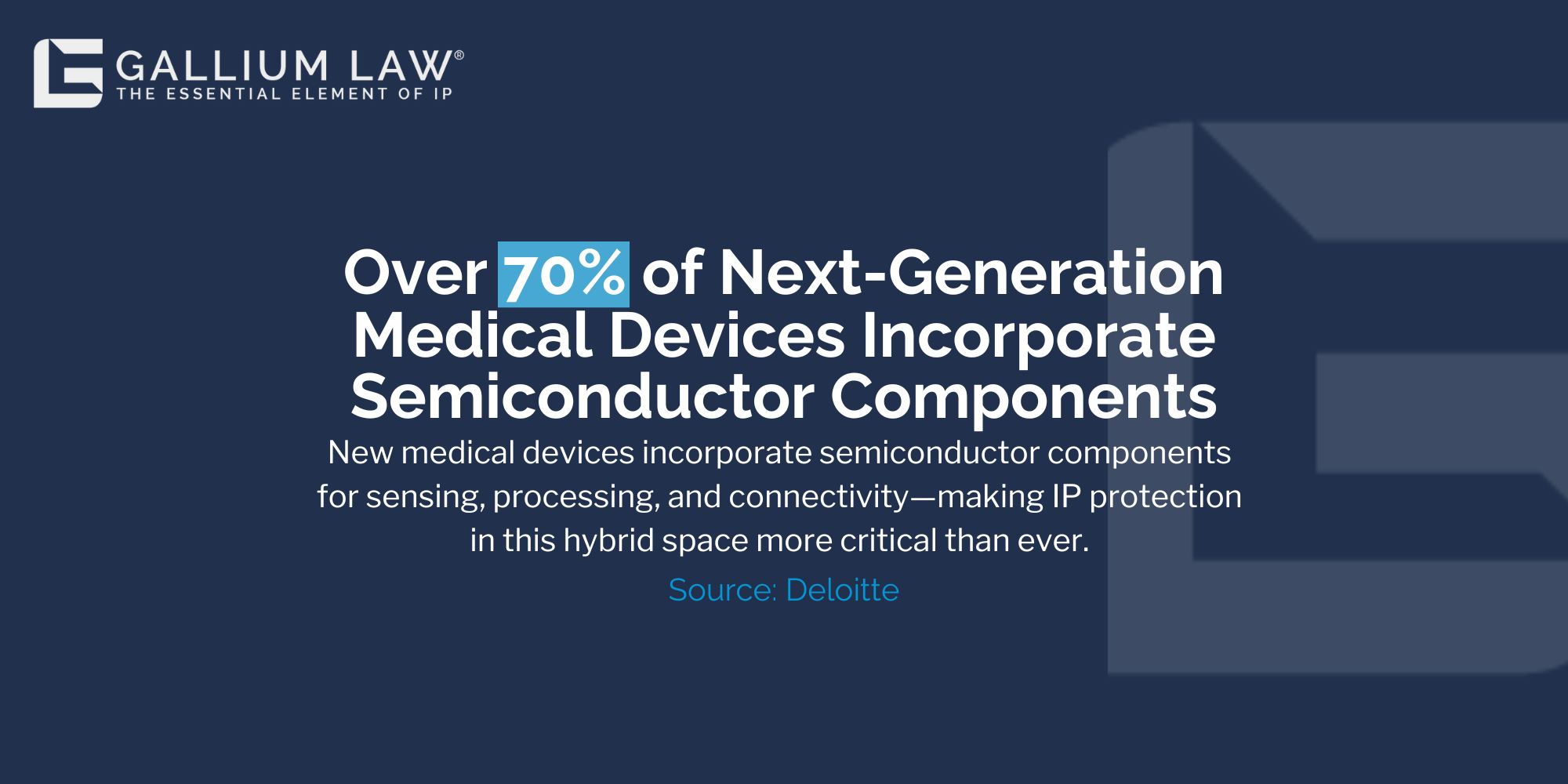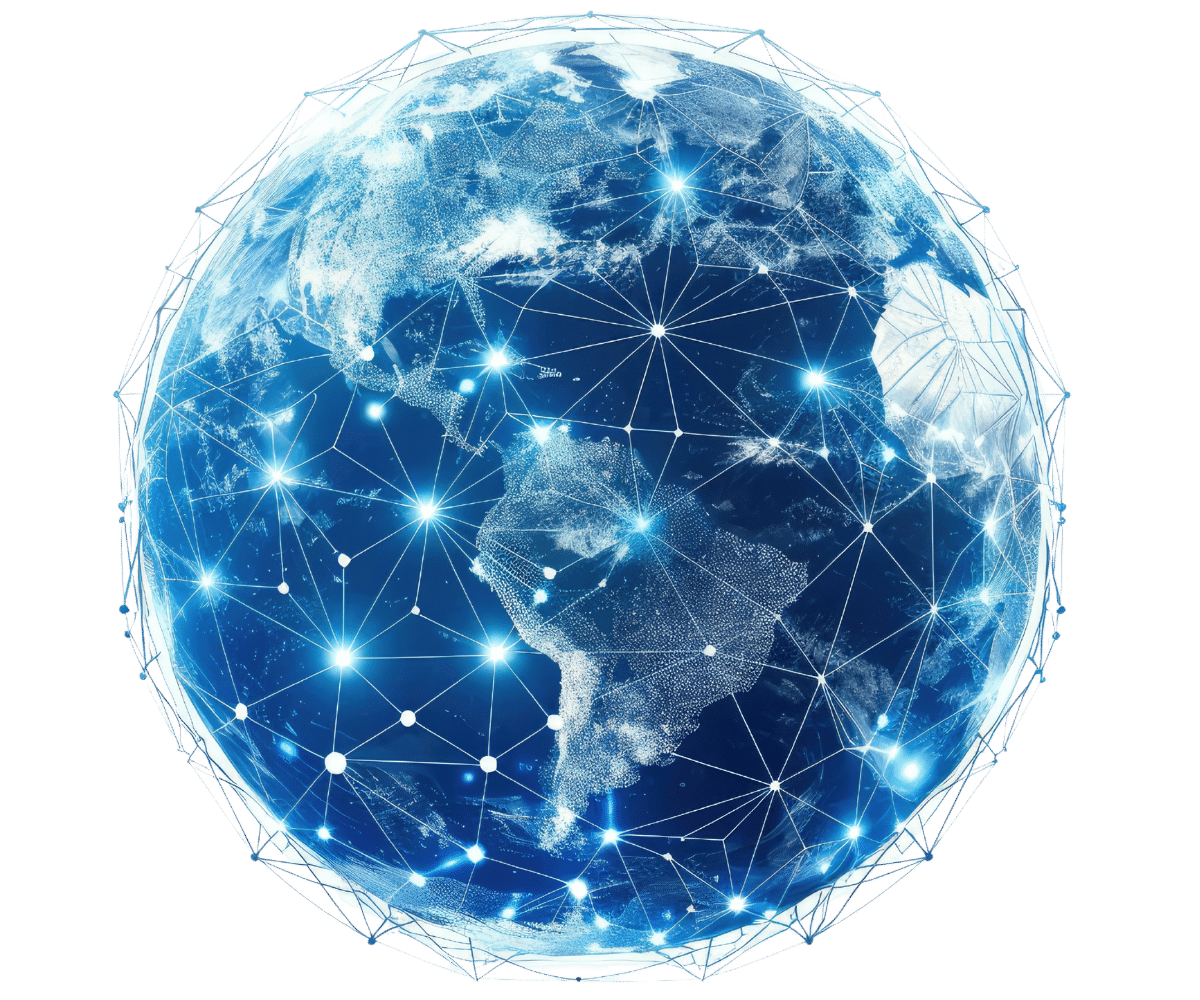Table of Contents

Connor Hance
August 2025

Anna Wengreen
August 2025

Nelson Lim
August 2025

Mike Lee
May 2025

Shawn
May 2025

Robert Paul
August 2024

Ryan Balko
September 2024

Daniel Bakke
August 2024

Gideon Eden
July 2023

David Morse
March 2024

Brady Hatcher
April 2023

Eric Wengreen
December 2022

Ashley Mooneyham
February 2022
Our Comprehensive Guide to Semiconductor Technology Patents and Medical Devices
The convergence of semiconductor technology and medical devices has transformed modern healthcare, creating unprecedented opportunities for innovation and equally complex challenges for intellectual property protection. As medical devices become increasingly sophisticated, incorporating advanced semiconductor components for processing, sensing, and communication, understanding the patent landscape becomes critical for inventors and companies seeking to protect their healthcare innovations.
Understanding Semiconductor Technology in Medical Applications
What Makes Semiconductor Patents Unique
Semiconductor technology patents represent some of the most technically valuable and complex intellectual property in any industry. These patents cover innovations in materials science, circuit design, manufacturing processes, and device architectures. When integrated into medical devices, semiconductors enable everything from precise diagnostic measurements to life-saving therapeutic interventions.
The uniqueness of semiconductor patents lies in their multi-layered nature. A single medical device might rely on patents covering the semiconductor material itself, the fabrication process, the circuit design, the packaging method, and the integration with biological interfaces. This complexity requires a sophisticated approach to patent protection that considers both the technological and regulatory landscapes.
Key Semiconductor Components in Medical Devices
Modern medical devices incorporate various semiconductor technologies, including biosensors, microprocessors, memory chips, power management circuits, and wireless communication modules. Each component may involve distinct patentable innovations. For example, a continuous glucose monitor relies on semiconductor-based sensors that detect glucose levels through electrochemical reactions, microprocessors that analyze the data, and wireless chips that transmit information to external devices.
The Intersection of Semiconductor and Medical Device Patents
Regulatory Considerations for Medical Device Patents
Unlike many semiconductor applications, medical devices face stringent regulatory requirements from bodies like the FDA. This regulatory environment significantly impacts patent strategy. Inventors must navigate not only the technical requirements for patentability but also demonstrate safety and efficacy for regulatory approval.
The patent prosecution process for medical devices with semiconductor components requires careful coordination between patent strategy and regulatory pathways. Claims must be drafted to cover both the current embodiment and potential design iterations that might arise from regulatory feedback or clinical testing results.
Patent Eligibility Challenges
Semiconductor-based medical devices often face unique patent eligibility challenges, particularly regarding software and diagnostic methods. Recent court decisions have created uncertainty around patents that combine natural phenomena with computer-implemented processes. Working with experienced IP professionals who understand both semiconductor technology and medical device regulations is essential for navigating these challenges.

Types of Patentable Semiconductor Innovations in Medical Devices
Hardware-Level Innovations
Hardware innovations represent the most straightforward category of patentable subject matter. These include novel semiconductor architectures, specialized circuits for biological signal processing, low-power designs for implantable devices, and miniaturization techniques that enable new form factors. For instance, patents might cover a specialized integrated circuit that can withstand the harsh environment inside the human body or a novel sensor design that improves accuracy while reducing power consumption.
Manufacturing Process Patents
The methods used to fabricate semiconductor-based medical devices can be equally valuable as the devices themselves. Process patents might cover techniques for integrating biocompatible materials with semiconductor substrates, sterilization-compatible manufacturing methods, or novel packaging approaches that protect sensitive electronics while allowing biological interactions.
Strategic Patent Portfolio Development
Building a Defensive Patent Portfolio
For companies developing semiconductor-based medical devices, building a robust patent portfolio serves multiple strategic purposes. A well-constructed portfolio not only protects core innovations but also provides leverage in negotiations and deters potential litigation. Comprehensive patent portfolio management requires identifying all patentable aspects of your technology, from fundamental inventions to incremental improvements.
Freedom to Operate Analysis
Before investing heavily in product development, conducting thorough due diligence is crucial. Freedom to operate searches help identify existing patents that might pose infringement risks. Given the dense patent landscape in both semiconductor and medical device fields, this analysis often reveals the need for licensing agreements, design modifications, or strategic acquisitions.
Navigating Patent Prosecution for Complex Technologies
Crafting Effective Patent Claims
Drafting patent claims for semiconductor-based medical devices requires balancing breadth and specificity. Claims must be broad enough to provide meaningful protection against competitors but specific enough to overcome prior art. Technical expertise in both semiconductor physics and medical applications is essential for identifying and patenting the truly novel and non-obvious aspects of an invention.
Responding to Office Actions
Patent applications for complex technologies often face multiple office actions. Examiners may cite prior art from disparate fields, requiring applicants to articulate how the combination of semiconductor technology and medical applications creates obvious results. Experienced patent attorneys understand how to present technical arguments and experimental data that demonstrate patentability.
International Patent Protection Strategies
Global Market Considerations
Medical device companies typically operate in international markets, making global patent protection essential. Different jurisdictions have varying standards for patent eligibility, particularly regarding medical diagnostics and treatment methods. A comprehensive international strategy must account for these differences while managing costs effectively.
The Patent Cooperation Treaty (PCT) provides a streamlined mechanism for filing applications in multiple countries. However, decisions about which countries to pursue must consider market size, manufacturing locations, competitor presence, and enforcement capabilities.
Learn How to Navigate PCT National Phase Entry with Confidence
Learn How to Navigate PCT National Phase Entry with Confidence
Many companies handle PCT filings in-house, but the national phase brings added complexity. Gallium Law supports clients who manage their own U.S. patents but need expert guidance for international filings.

Licensing and Monetization Strategies
Technology Transfer in Medical Devices
Semiconductor patents in medical devices present unique licensing opportunities. Companies may license foundational semiconductor technology from specialized chip manufacturers, cross-license with competitors to ensure freedom to operate, or out-license their innovations to device manufacturers. Each scenario requires careful contract negotiation to protect IP rights while enabling business objectives.
Strategic Partnerships and Joint Development
Many medical device innovations emerge from partnerships between semiconductor companies, medical device manufacturers, and research institutions. These collaborations require clear agreements about IP ownership, licensing rights, and commercialization responsibilities. Proper planning at the outset prevents disputes that could derail promising technologies.
Patent Enforcement and Litigation
Protecting Your IP Rights
When competitors infringe on semiconductor patents in medical devices, enforcement options range from cease-and-desist letters to full litigation. The choice of strategy depends on factors including the strength of the patent, the value of the market, the relationship with the infringer, and available resources. Some cases may be resolved through licensing negotiations, while others require aggressive legal action to protect valuable market positions.
Defending Against Infringement Claims
Companies developing semiconductor-based medical devices may also face infringement allegations from competitors or patent assertion entities. A strong defense requires analyzing the asserted patents for validity, examining whether the accused products actually infringe, and identifying potential invalidity arguments based on prior art or patent prosecution history.
Looking Forward: Emerging Technologies and Patent Strategy
Future Trends in Semiconductor Medical Devices
The medical device industry continues to evolve rapidly, with emerging technologies like implantable brain-computer interfaces, smart contact lenses, and nano-scale drug delivery systems pushing the boundaries of what’s possible. These innovations create new patent opportunities while also raising novel legal and ethical questions about patentability and enforcement.
Proactive Patent Strategy for Innovation
Successful companies don’t just react to patent issues as they arise. Instead, they integrate IP strategy into their research and development process from the beginning. This proactive approach includes regular invention harvest sessions, ongoing competitive intelligence, strategic filing decisions, and continuous portfolio review to ensure alignment with business objectives.
Partner with Gallium Law for Your IP Needs
Protecting semiconductor innovations in medical devices requires specialized expertise at the intersection of technology, law, and regulatory requirements. Gallium Law combines technical knowledge with personalized service to help inventors and companies secure meaningful patent protection. Whether you’re filing your first medical device patent or managing a complex portfolio, our team provides the strategic guidance you need.
Understanding patent and trademark terms and staying current with USPTO procedures helps ensure your IP strategy remains effective. Contact our team today to discuss how we can help protect your semiconductor and medical device innovations.

